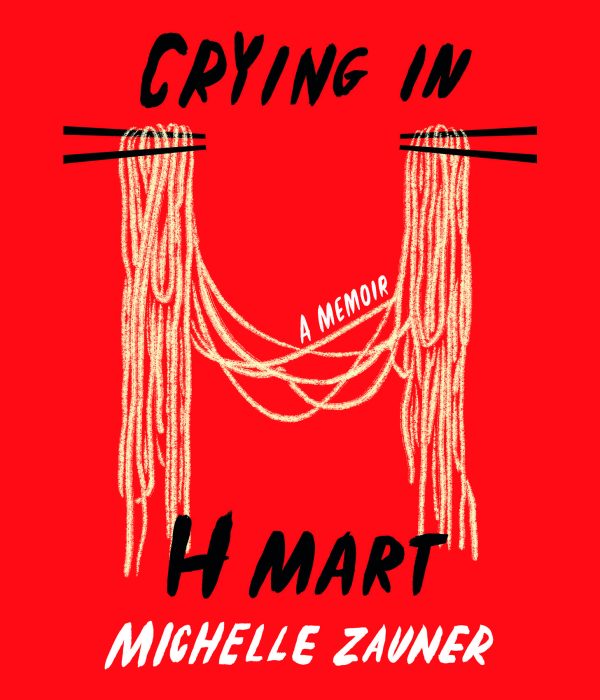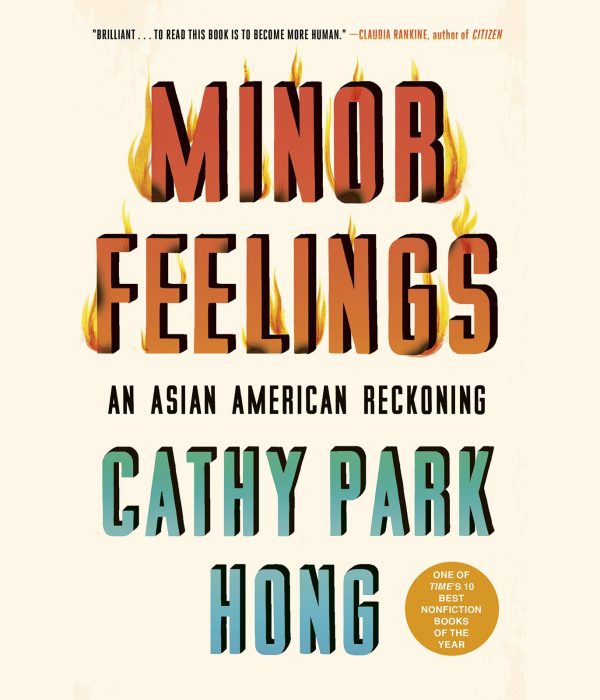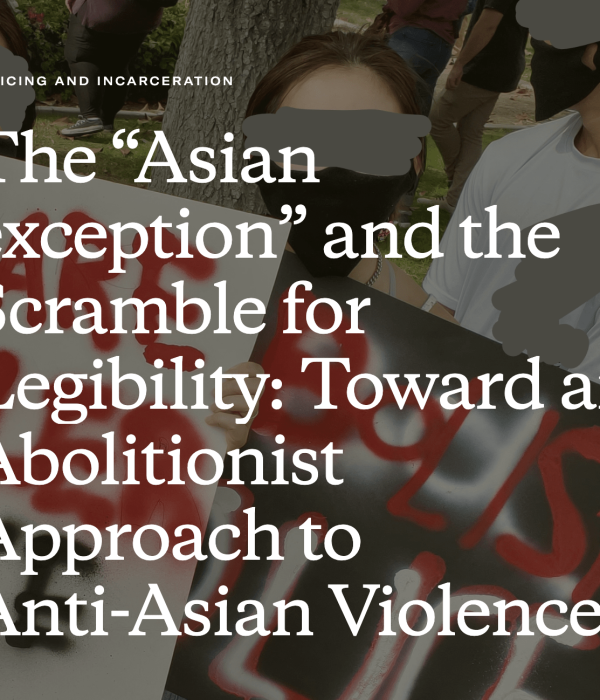
Communications Coordinator
The Natural Capital Center. Photo credit: Emilie Chen
This Asian Pacific American Heritage Month, Ecotrust staff who are of Asian descent share readings and writings that resonate with their unique experiences.
Where do you start in honoring Asian Pacific American Heritage Month? Our countries of origin are many; our ethnicities within those countries numerous. Our and our ancestors’ immigration stories are varied, determined by more than a century of US legislation that restricted how we came to the West or whether we came here at all. Importantly, the migration of many Asian and Pacific Islander peoples to the West has been driven by US imperialism that dwindled economic opportunities in our home countries while ballooning them in the US.
My parents are immigrants who identify by their Taiwanese nationalities and by their specific Chinese ethnicities; they don’t identify as “Asian American.” In my childhood, we celebrated Chinese holidays but never Asian Pacific American Heritage Month. I only just learned about this honorific month this year, probably because Asian identities have been spotlighted—and conflated in confused dialogues—in the racist scapegoating of Asian people during the pandemic.
I’ve learned that, in 1992, the month of May was officially designated to honor Asian Pacific American heritages, “[commemorating] the first immigrants from Japan to the United States on May 7, 1843 and to celebrate the completion of the transcontinental railroad by over 20,000 Asian immigrants on May 10, 1869.” The phrase “Asian Pacific Islander” was retired in the late 1990s, when the White House finally recognized Asian and Pacific Islander as two distinct racial categories.

Photo of a camp for Chinese laborers in the Dalles, Ore. in 1882-1883. Photo credit: Oregon Historical Society
“Asian and Pacific Islander”—often abbreviated as API or AAPI—is commonly used today, even though the API/AAPI acronym remains problematic. Many Pacific Islander people, also called Pasifika, are Indigenous to the Pacific Islands of Melanesia, Micronesia, and Polynesia. The API/AAPI acronyms conflate race with indigeneity; it eclipses the histories that many Pacific Islands have been colonized by white and Asian countries. While the use of API/AAPI is intended to and can sometimes be inclusive, many Pasifika have expressed that the phrase also leads to erasure, because API/AAPI is often used to refer only to Asian American experiences.
The phrase “Asian immigrant and Asian American” can be a more specific way to describe people from Asia and their descendants in the US. A lot of the discourse about anti-Asian violence in the past year has struggled with the perpetual foreigner stereotype by unnecessarily, sometimes inaccurately, Americanizing Asian people. Even so, the sweeping phrase refers to a global majority of people from the world’s largest continent and many island nations. The phrase includes Central Asians and South Asians, even though it is often perceived (and used) to refer only to East Asians and Southeast Asians.
So where do we begin, with celebrating a monolithic identity label that acknowledges our unity in being and being perceived as Asian in the US, but that also conflates our uniquenesses? Among the staff of Asian descent at Ecotrust, we are first-, second-, and third-generation Americans. Some of us are biracial or multiracial, and some of us are not; our heritages span Korea, to China, to Malaysia, to the Philippines.
I find it interesting and perplexing that I have to learn about my racial identity—the way that others perceive me—though they may not learn about the actual way I see myself. Maybe in the smallest of ways, my fellow coworkers of Asian descent and I find resonance in reading and writing: hearing our own feelings reflected in others’ words and putting our experiences into our own words and stories. This list is not intended to be representative of the full Asian diaspora, but is instead a small list of what’s been important to our team, as we live our Asian identities in a time of resurfaced anti-Asian sentiment.
What an adventure the author embarks on to discover more about himself, on his bicycle journey from the Bay Area, Calif. to Vietnam. He meets extended family and learns about the life his parents left to seek refuge in the US. I enjoyed his reflections on self-identity, on feeling connected to much of the culture in Vietnam, but not necessarily belonging. It resonated with a lot of my own journey and feelings as an immigrant in the US: being of two worlds and sometimes feeling like I belong to neither. —Denise Chin
I recommend Maxine Hong Kingston’s Chinamen because she provides a window into the history of Chinese immigration to the United States, beginning with the building of the transcontinental railroad. Both [China Men and Minor Feelings by Cathy Park Hong] describe American public perception of Asians and the racism that we encounter. —Maralea Lutino
Reading this book is the first time I’ve identified with an author who shares a similar racial identity to me. As someone who is half Korean, born and living in the US, so much of Zauner’s writing recalled childhood memories and mannerisms of my own family: from shopping at TJ Maxx with my aunts and Halmoni; to only eating soup when it’s “piping hot”; to always being asked “what are you?”; to the constant internal seeking of belonging somewhere; to the effort of having to prove my American-ness or prove my Korean-ness. Reading Zauner’s book, I felt seen, while also enjoying her descriptive food memories and reflecting on the universal grief of losing a loved one. —Kaitlyn Rich

A graphic novel that touches on culture and identity, especially in raising a mixed-race child. Mira’s anecdotes are hard-hitting yet also hilarious, because I have also seen/experienced similar situations in dealing with colorism, among others. I have never enjoyed a graphic novel so much. —Denise Chin
Yu structures his novel as a surrealist screenplay, documenting the life of a Chinese actor, born in America but seen as a perpetual foreigner. My grandmother lived in and raised her five daughters in Boston’s Chinatown since the 1950’s, and she still lives there today. This novel gave me a glimpse of the first and second generation Chinese immigrant experience; of the struggle to be seen and valued as a whole person, when the world you were surrounded by made you believe in a single story about yourself. —Madeleine Corich

[Contrasting the historical view provided in China Men], I recommend Minor Feelings because it’s a contemporary look at the Asian American experience with racism written from the point of view of a first generation Korean-American immigrant. As a Filipina immigrant, I identify with Hong’s immigration experience as well as her attendance at a prestigious liberal arts college. —Maralea Lutino
This was the first book I read that centered the experiences of queer Asians in America. Narrated in Pidgin English, you can hear the voice and experiences of the author R. Zamora Linmark, a Filipino immigrant himself, as he explores the topics of sexuality, racism, and growing up, through his characters. —Madeleine Corich
The feature-length film by Lulu Wang inspired by her own experience as a Chinese American woman who returns to China to visit her grandmother, who is terminally ill. I was 27 years old when this film was released, and until then, I had never seen media representation of the dual lives I live as an American and who I am when I am with my family in Asia. —Emilie Chen
So much of this article spoke to me as Ligaya captured the sentiments I have always felt ever since my first time going to an Asian market in the US. Asian markets evoke so many feelings of belonging and are a place of solace. Traveling many miles to find a certain ingredient or hoarding them in checked luggage (like I do with my mom’s fried shallots)—I felt so seen by this article, in that I am not alone. —Denise Chin
“What happens when anti-Asian violence is substantially, intentionally, and publicly narrated in continuity with (rather than in exception to, or in political competition with) white supremacist, antiblack, and settler colonial violences in their episodic, systemic, and long historical forms?”

I am making my way through all of Lilly’s episodes, because she touches on so many pertinent issues with great humor. I don’t know Lilly but I am so immensely proud of her for being the first woman of color in late night, and standing her ground by taking the show in the direction that is authentic to her personality and sense of humor. Her perspective as someone from a big family and who has lived outside the US are just a few of the ways her humor is so relatable to me. —Denise Chin
As the second runner-up of samfiftyfour’s Asian Diaspora Contest, Denise’s essay describes in delicious detail the nostalgia for Malaysian home cooking and the experience of recreating those meals in the West.
As an artist, entrepreneur, community convener, small human nurturer, and Ecotrust board member, Susie shares how human connectivity is central to her work and how motherhood shapes her outlook on the world.
Madeleine “Maddy” Corich has been an active part of the youth-led climate justice movement, Sunrise. In 2019, after returning from Sunrise’s Western Regional Summit, Maddy reflects on how activism has become an antidote to despair.
Kaitlyn, along with Maddy, reflects on the code-switching that Black, Indigenous, and professionals of color must often deploy to navigate white-dominant workplaces and offers solutions for fundraisers and actions for employers to take.
A birding trip with my father, in the country where he grew up, becomes an opportunity to bridge language gaps and share in the defining pastime of my adulthood.

BLOG
Our Creative Director Sarah Cline interviews Ecotrust board member Susie Lee

BLOG
Grants Coordinator Madeleine Corich reflects on how climate activism is an antidote to despair.